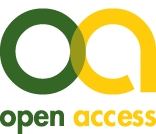Thursday, September 12. 2013
The Director General of the UK's Russell Group of universities, Wendy Piatt, responded as follows to the BIS Committee Recommendations on UK OA policy:  “We welcome the committee’s report, which highlights the vital role that ‘green’ open access can play as the UK moves towards full open access... [T]he committee rightly highlights that ‘green’ open access is a simple and cost-effective way of sharing research. We urge the Government to take note of the calls to reconsider its preference for ‘gold’ open access during the five year transition period." “We welcome the committee’s report, which highlights the vital role that ‘green’ open access can play as the UK moves towards full open access... [T]he committee rightly highlights that ‘green’ open access is a simple and cost-effective way of sharing research. We urge the Government to take note of the calls to reconsider its preference for ‘gold’ open access during the five year transition period."
“However, we have real reservations about the committee’s recommendation to restrict embargo periods to six months for STEM subjects and 12 months for humanities, arts and social sciences. This will directly limit where researchers can publish, will constrain academic freedom and could potentially damage the international standing of UK universities.”
The substantive recommendations of the 2013 BIS Report ( I, II) were: 1. that the Green OA deposit in the institutional repository should be immediate rather than delayed, whether or not Open Access to the deposit is embargoed by the publisher (during any OA embargo the repository's eprint-request Button can then enable the author to fulfill individual user eprint requests automatically with one click each if deposit was immediate),
2. that an effective mechanism for monitoring and ensuring timely mandate compliance should be implemented, and
3. that Gold OA publishing should either no longer be preferred or hybrid Gold should no longer be funded. The only bearing these three recommendations have on author freedom-of-choice of journal is that they restore it: Whereas Finch/RCUK's current preference for publishing in Gold OA journals would have restricted author freedom of choice, BIS removes that restriction. Authors can publish in whatever journal they wish.
As to the BIS suggestion to reduce the maximum allowable Green OA embargo limit to 6-12 months from 12-24 months: the immediate-deposit mandate (plus the repository Button) largely moots this. As long as deposit is immediate, there would be nothing wrong with allowing an opt-out or waiver (as in the American opt-out mandate models, such as Harvard's) from the maximal embargo limit on an individual article basis, if the author demonstrates that it would restrict journal choice to have to comply with the embargo. The critical thing is that there should be no opt-out from immediate-deposit (which, if not immediately OA, has no bearing whatsoever on author freedom of choice of journals). Authors can publish in whatever journal they wish.
 In response to the BIS Select Committee Report Dame Janet Finch writes: Dame Janet Finch: "There are some unfortunate gaps in the Select Committee’s consideration. In particular their comments on the publishing industry take no account of a [sic] Learned Societies, whose publishing and other roles have been a major concern of our working group." The substantive recommendations of the 2013 BIS Report ( I, II) were: 1. that the Green OA deposit in the institutional repository should be immediate rather than delayed, whether or not Open Access to the deposit is embargoed by the publisher (during any OA embargo the repository's eprint-request Button can then enable the author to fulfill individual user eprint requests automatically with one click each if deposit was immediate),
2. that an effective mechanism for monitoring and ensuring timely mandate compliance should be implemented, and
3. that Gold OA publishing should either no longer be preferred or hybrid Gold should no longer be funded. It is not at all clear how this amounts to "tak[ing] no account of a [sic] Learned Societies, whose publishing and other roles have been a major concern of our working group."
The Report does recommend shorter limits on the maximum allowable publisher embargo on OA, but that has no bearing whatsoever on the substantive recommendations above, which refer to the mandatory date of deposit, not to the date on which the deposit is made OA.
 Anonymous Anonymous: " By the time we reach 100% Green OA, there will be few journals left to cancel and it will be far too late to start charging authors a "fair gold" price for something they feel they have been getting for free up till then."
Until Green OA is at or near 100%, a journal cannot be cancelled because its contents cannot be accessed any other way. And Green OA grows anarchically, not journal by journal but article by article.
So subscriptions will support publication for as long as they are sustainable; when global Green OA is at or near 100%, and at or near the point of making subscriptions unsustainable, journals will be forced to cut costs by phasing out all inessential products and services. That means print edition, online edition, access-provision and archiving. Nothing will be left for them to do except manage the peer review and certify the outcome with their journal name. All access provision and archiving will be offloaded onto the distributed global network of Green OA repositories.
And authors will not have to pay the (Fair Gold) cost of the journal's peer review service out of pocket: Their institutions will pay for it out of a fraction of their annual windfall savings -- from their subscription cancellations.
Harnad, S. (2007) The Green Road to Open Access: A Leveraged Transition. In: Anna Gacs. The Culture of Periodicals from the Perspective of the Electronic Age. L'Harmattan. 99-106.
Harnad, S. (2010) No-Fault Peer Review Charges: The Price of Selectivity Need Not Be Access Denied or Delayed. D-Lib Magazine 16 (7/8).
Tuesday, September 10. 2013
 It's time for the Wellcome Trust to think more deeply about its endlessly repeated mantra that the "cost of publication is part of the cost of funding research."
The statement is true enough, but profoundly incomplete: As a private foundation, Wellcome only funds researchers' research. It does not have to fund their institutional journal subscriptions, which are currently paying the costs of publication for all non-OA research. And without access to those subscription journals, researchers would lose access to everything that is not yet Open Access (OA) -- which means access to most of currently published research worldwide. Moreover, if those subscriptions stopped being paid, no one would be paying the costs of publication.
In the UK, it is the tax-payer who pays the costs of publication (which is "part of the cost of funding research"), by paying the cost of journal access via institutional subscriptions. It is fine to wish that to be otherwise, but it cannot just be wished away, and Wellcome has never had to worry about paying for it.
The Wellcome slogan and solution -- the "cost of publication is part of the cost of funding research," so pay pre-emptively for Gold OA -- works well enough for Wellcome, and as a wish list. But it is not a formula for getting us all from here (c. 30% OA, mostly Green) to there (100% OA). It does not scale up from Wellcome to the UK, let alone to the rest of the world.
What scales up is mandating Green OA. Once Green OA reaches 100% globally, journals can be cancelled, forcing them to downsize and convert to Fair Gold, single-paid at an affordable, sustainable price, instead of double-paid pre-emptively at today's arbitrarily inflated Fools-Gold price.
Hence it is exceedingly bad advice on Wellcome's part, to urge the UK, that because the "cost of publication is part of the cost of funding research," the UK should double-pay (subscriptions + Gold OA) for what Wellcome itself only needs to single-pay. (And this is without even getting into the sticky question of overpricing and double-dipping.)
Wellcome took a bold and pioneering step in 2004 in mandating OA.
But in since cleaving unreflectively and unresponsively to pre-emptive payment for Gold OA as the preferred means of providing OA -- because Wellcome does not have to pay for subscriptions -- the net effect of the Wellcome pioneering intiative is now beginning to turn negative rather than positive.
I hope the BIS Report will encourage Wellcome to re-think the rigid route that it has been promoting for a decade, culminating in the Finch Fiasco.
 One could hardly have hoped for a better outcome from the Business, Innovation and Skills Committee's Report. If BIS's recommendations are followed then the UK will regain its global leadership role in the Open Access movement -- the role the UK has been playing ever since the pioneering Report in 2004 by Ian Gibson's Parliamentary Select Committee on Science and Technology. That Report had recommended that UK's universities and funding councils should mandate Green OA self-archiving of all peer-reviewed research articles. In the ensuing years more and more of the rest of the world began to follow suit.
The 2013 BIS Report ( I, II) now recommends mandating; 1. that the Green OA deposit in the institutional repository should be immediate rather than delayed, whether or not Open Access to the deposit is embargoed by the publisher (during any OA embargo the repository's eprint-request Button can then enable the author to fulfill individual user eprint requests automatically with one click each if deposit was immediate),
2. that an effective mechanism for monitoring and ensuring timely mandate compliance should be implemented, and
3. that Gold OA publishing should either no longer be preferred or hybrid Gold should no longer be funded. The BIS recommendations now perfectly complement HEFCE's recommendation (as well as those of BOAI-10: 1.6) to make immediate-deposit a condition for eligibility for REF 2020 (thereby effectively recruiting universities to serve as the mechanism for ensuring timely compliance, following the highly successful mandate model of the University of Liège). This effectively fixes the flaws in the Finch Report. The UK's OA policy will now also be compatible with OA policies in the EU, the US and the rest of the world, doing them all one better with its explicit call for immediate institutional deposit and effective compliance monitoring.
 Business, Innovation and Skills Committee Select Committee
Announcement No.21
Monday 9 September 2013
NEW REPORT: Open Access: achieving a functional market
Under strict embargo until 00.01 BST on Tuesday 10 September
Government mistaken in focusing on Gold as route to full open access, says Committee
The Government’s commitment to increasing access to published research findings, and its desire to achieve full open access, are welcome, says the Business, Innovation and Skills Committee in a Report published today. However, whilst Gold open access is a desirable ultimate goal, focusing on it during the transition to a fully open access world is a mistake, says the Report.
The Report calls on the Government and RCUK to reconsider their preference for Gold open access during the five year transition period, and give due regard to the evidence of the vital role that Green open access and repositories have to play as the UK moves towards full open access.
The Report recommends that: • the Government should take an active role in promoting standardisation and compliance across subject and institutional repositories [paragraph 25].
• RCUK should reinstate and strengthen the immediate deposit mandate in its original policy and improve the monitoring and enforcement of mandated deposit [paragraph 31].
• the Government and RCUK should revise their policies to place an upper limit of 6 month embargoes on STEM subject research and up to 12 month embargoes for HASS subject research [paragraph 50].
• the Government should mitigate against the impact on universities of paying Article Processing Charges out of their own reserves [paragraph 64].
• if the preference for Gold is maintained, the Government and RCUK should amend their policies so that APCs are only paid to publishers of pure Gold rather than hybrid journals to eliminate the risk of double-dipping [paragraph 77].
Wednesday, September 4. 2013
 In his interview with Richard Poynder, Cameron Neylon, as always, makes many valid and astute points. But there is one thing about which I think he is quite profoundly mistaken:
CN: " While we can generate wider access with relatively little transitional costs through repository-mediated OA this won’t help to bring down subscriptions costs."
Apart from the fact that lowering subscription (or publication) costs and providing open access to publisher research are not the same thing at all (and that the urgent and overwhelming priority of Open Access is Access), I think Cameron underestimates the profound causal connection between them:
No, the primary purpose of repository-mediated OA (Green OA) is not to serve as a transition to Gold OA publishing: it is to provide OA.
But in providing the infrastructure for providing OA, the global network of Green OA repositories also provides the means of downsizing publishing to just the cost of managing peer review (which peers provide for free). All the rest of the costs of pre-Green-OA publishing (access-provision, archiving) are -- post-Green -- offloaded and distributed across the global network of Green OA repositories (while the print and online editions and their costs can be jettisoned completely).
That is why the small residual cost of post-Green Gold OA will be affordable, sustainable "Fair Gold" OA whereas the current cost of pre-Green Gold OA is arbitrarily inflated "Fools Gold" OA. And that's not just because the global Green OA infrastructure is not yet in place and absorbing all the costs of access-provision and archiving, but because subscriptions are still in place and have to keep being paid until those articles are made Green OA!
Hence pre-Green Gold means not only inflated prices but double-payment (for (1) subscriptions to all the must-have journals that are non-OA plus (2) Fools-Gold fees for pre-Green Gold OA journals) -- not to mention the further possibility of (3) publisher double-dipping in the case of hybrid Fools Gold.
So it is not at all the case that there is " a role for Green OA and institutional repositories, although perhaps only a transitional one": Green OA repositories can and will provide not only 100% OA, permanently, but they will thereby also make it possible (indeed necessary) for journal publishing to downsize and convert to Fair Gold -- and at the same time release the institutonal subscription funds, of which a fraction can then be used to pay (rather than double-pay) for Fair Gold.
Cameron is completely right, however, that " [t]he single most important task today is putting in place robust and transparent mechanisms to report on [Green OA mandatory] policy compliance… and monitor the growth of access." That done, effectively, the transition to Fair Gold OA will then take care of itself.
(I would close by emphasizing that just as providing OA itself is incomparably more important and urgent than publishing reform, so OA's provision of access to all users, rather than just to subscribers, is incomparably more important and urgent than providing further re-use rights, over and above online access free for all: Fair Gold and all the re-use rights that users need and authors want to provide will come, as surely as day follows night -- but Green OA must come first.)
Harnad, S. (2007) The Green Road to Open Access: A Leveraged Transition. In: Anna Gacs. The Culture of Periodicals from the Perspective of the Electronic Age. L'Harmattan. 99-106.
Harnad, S. (2010) No-Fault Peer Review Charges: The Price of Selectivity Need Not Be Access Denied or Delayed. D-Lib Magazine 16 (7/8).
|
 “We welcome the committee’s report, which highlights the vital role that ‘green’ open access can play as the UK moves towards full open access... [T]he committee rightly highlights that ‘green’ open access is a simple and cost-effective way of sharing research. We urge the Government to take note of the calls to reconsider its preference for ‘gold’ open access during the five year transition period."
“We welcome the committee’s report, which highlights the vital role that ‘green’ open access can play as the UK moves towards full open access... [T]he committee rightly highlights that ‘green’ open access is a simple and cost-effective way of sharing research. We urge the Government to take note of the calls to reconsider its preference for ‘gold’ open access during the five year transition period." In response to the BIS Select Committee Report
In response to the BIS Select Committee Report 
 It's time for the Wellcome Trust to think more deeply about its endlessly repeated mantra that the "cost of publication is part of the cost of funding research."
It's time for the Wellcome Trust to think more deeply about its endlessly repeated mantra that the "cost of publication is part of the cost of funding research."  Business, Innovation and Skills Committee Select Committee
Business, Innovation and Skills Committee Select Committee 


